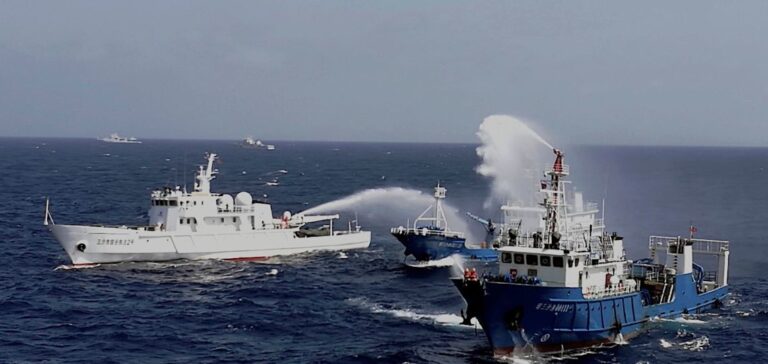The United States, the European Union, Japan and other countries have requested China’s “assistance” in preventing North Korea from circumventing UN oil sanctions by using Chinese territorial waters, according to a letter seen by AFP on Friday.
International cooperation against illegal oil trafficking to North Korea: Ambassadors’ letter to the United Nations
Their ambassadors to the UN request in the letter “assistance” from their Chinese counterpart Zhang Jun “to stop (North Korea’s) maritime activities seeking to evade sanctions imposed by UN Security Council resolutions”.
“In particular, we are concerned about the repeated presence of multiple tankers” identified by the UN sanctions panel “using your national waters in Sansha Bay as a safe haven to facilitate their trade of sanctions-targeted petroleum products” to North Korea, the letter says.
It was signed by the UN ambassadors of Australia, Canada, France, the EU, Germany, Italy, Japan, New Zealand, South Korea, the UK and the USA. The document specifies that satellite images showing that “these practices continued within China’s jurisdiction” in 2022 and 2023 will also be transmitted.
“We repeat our previous request to China to inspect the vessels for evidence of illegal oil trafficking” and to “expel” its vessels from its waters “as quickly as possible” if they return to Sansha Bay.
Oil blockade and nuclear tensions: International sanctions against North Korea
North Korea has been subject to international sanctions since 2006, and these were increased three times in 2017. The measures taken unanimously by the Security Council that year to force Pyongyang to halt its nuclear and ballistic weapons programs included restrictions on North Korea’s oil imports.
Since 2017, the Security Council has been unable to reach a united position. In May 2022, China and Russia vetoed a resolution imposing new sanctions on Pyongyang, and no Council resolution or statement has been adopted since, despite several missile launches by North Korea, including again on Saturday. The United States in particular regularly accuses Beijing and Moscow of acting as a “shield” for the North Korean regime, and of encouraging new shootings by preventing a united response from the Council.
“It is essential for the international community, including China, to send a strong and united message that North Korea must refrain from provocation, respect its obligations” linked to Security Council resolutions and commit “to the total, verifiable and irreversible denuclearization of the Korean peninsula”, insists the letter sent to the Chinese ambassador.






















